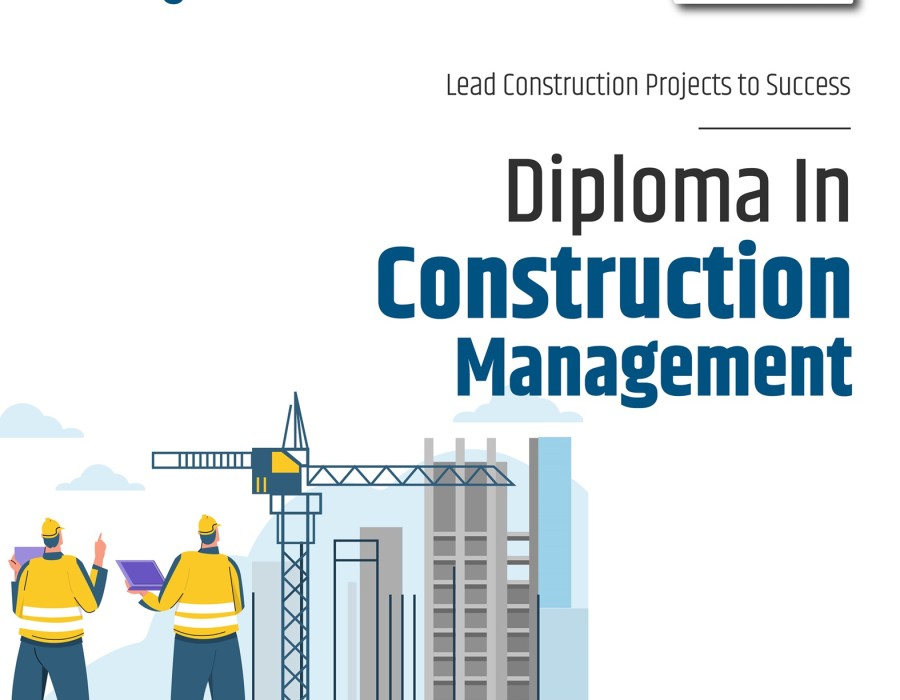Are you thinking of a career in the ever-changing field of construction? Then, enrolling in a Construction Management Course would be the most strategic step. According to the Construction Global Market Report 2024, the construction market has grown significantly during the past few years. It is expected to reach $15971.45 billion in 2024 at a compound annual growth rate (CAGR) of 5.1%.
With these figures, the demand for skilled professionals in this field is skyrocketing. This blog will explore what Construction Management is, the key roles and responsibilities associated with this sector, and the significant skills required to excel.
Understanding Construction Management
Construction management entails the process of planning, designing, budgeting, coordinating, and supervising a construction project from its initiation to its finalization. The practice ensures that the finished product meets all quality criteria.
Roles and Responsibilities
Construction Management includes key roles, each of them having properly defined responsibilities.
Project Manager: The individual who looks over the entire project, manages various stakeholders, and ensures that the project is running smoothly.
Site supervisor: An individual responsible for day-to-day construction management on-site, ensuring that work is executed in full accordance with the plans and programs.
Estimator: Someone who collates data, appraises it, and then gives cost estimates right at the very beginning of a project.
Safety Officer: The person who oversees compliance with safety measures to minimize risks at work and to protect the workers.
Quality Control Manager: The job of the Quality control manager is to ensure that work is done according to the specified standards and parameters of quality.
Key Stages of Construction Management
Anyone who participates in the building industry needs to understand Construction Management’s major stages. These can be divided into three main categories: Pre-Construction, Construction, and Post-Construction.
Pre-construction Phase
Project Initiation and Feasibility Studies: This includes establishing the feasibility of the project based on initial screenings and market analysis. This study aims to locate potential problems or opportunities in the future.
Planning and Scheduling: Successful projects begin with proper planning and scheduling. Construction Managers create timelines, allocate resources, and set milestones among others as a way of ensuring that all aspects of the project are organized.
Budgeting and Resource Allocation: Proper budgeting is important for the success of any project. Therefore, Construction Managers have to estimate costs for materials like labor and other expenses, thus making a budget consistent with its objectives.
Construction Phase
Site Management and Supervision: Site supervisors make sure that team members understand their roles as well as monitor progress compared to the planned timetable.
Quality Control Measures: In Construction Management quality comes first. Routine inspections are carried out according to guidelines to make sure that these standards are met throughout the development process.
Safety Protocols: Implementing safety protocols including training employees is critical to prevent accidents and ensure a secure work environment.
Post-construction Phase
Final Inspections and Handover Process: After completion, final checks are conducted to confirm everything meets the required standards before it is made available for client use.
Maintenance and Warranties: At this stage, the client should be given the necessary documentation for future maintenance together with warranties on completed works.
Project Closure and Evaluation: At last, projects undergo an evaluation to capture lessons learned and also determine performance against objectives thus leading to improved future projects.
UniAthena’s Diploma In Construction Management
This Online Construction Management Course will equip you with the changing and complex nature characteristics of Construction Management. It will equip you with the knowledge of four key core functions, including Project Management, EHS Management, Building Services Engineering Management, and Energy-Efficient Buildings. By offering a comprehensive blend of these critical areas, the course equips you with conceptual frameworks, tools, and practical insights to help you confidently navigate modern construction challenges.
Whether you are a beginner or a professional looking to upskill, this free online course is an ideal starting point. The best part? You can complete this flexible, self-paced course in just 1–2 weeks of learning. Plus, get a chance to boost your credentials with a paid Blockchain-verified certification upon completion. Enroll now and begin working toward a more rewarding professional future!





Comments